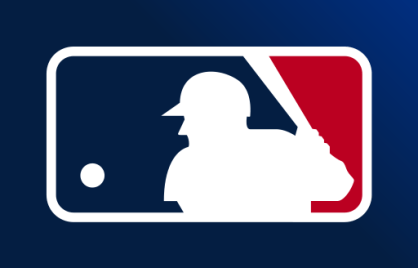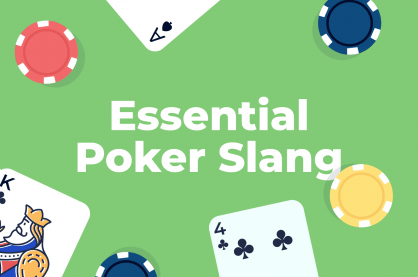17 Unwritten Rules of Poker That Every Player Needs To Know About
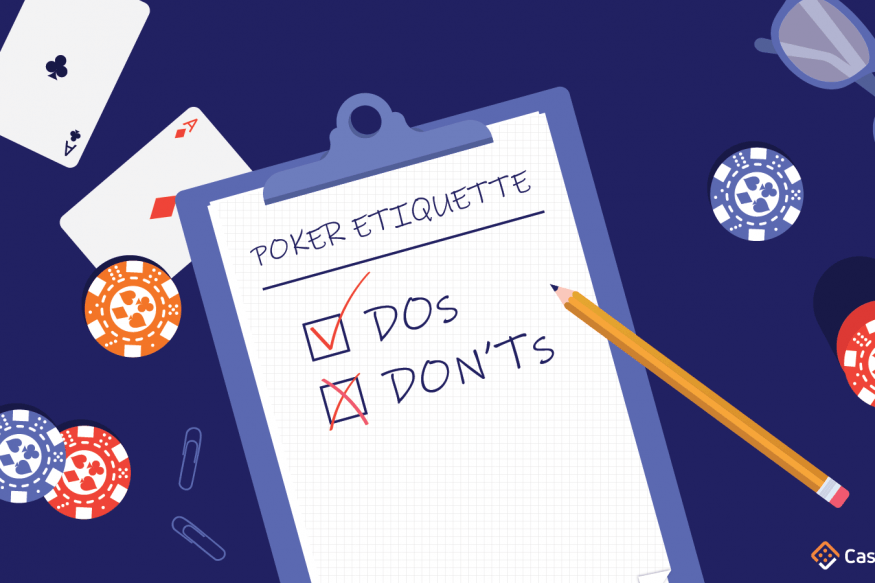
Having a good understanding of poker etiquette and unwritten rules will improve the game and atmosphere at the table for everyone – and it could help you win more too.
There are many dos and don’ts in this space so today, I want to summarize a complete set of unwritten poker rules for live games.
1. Don’t Angle Shoot
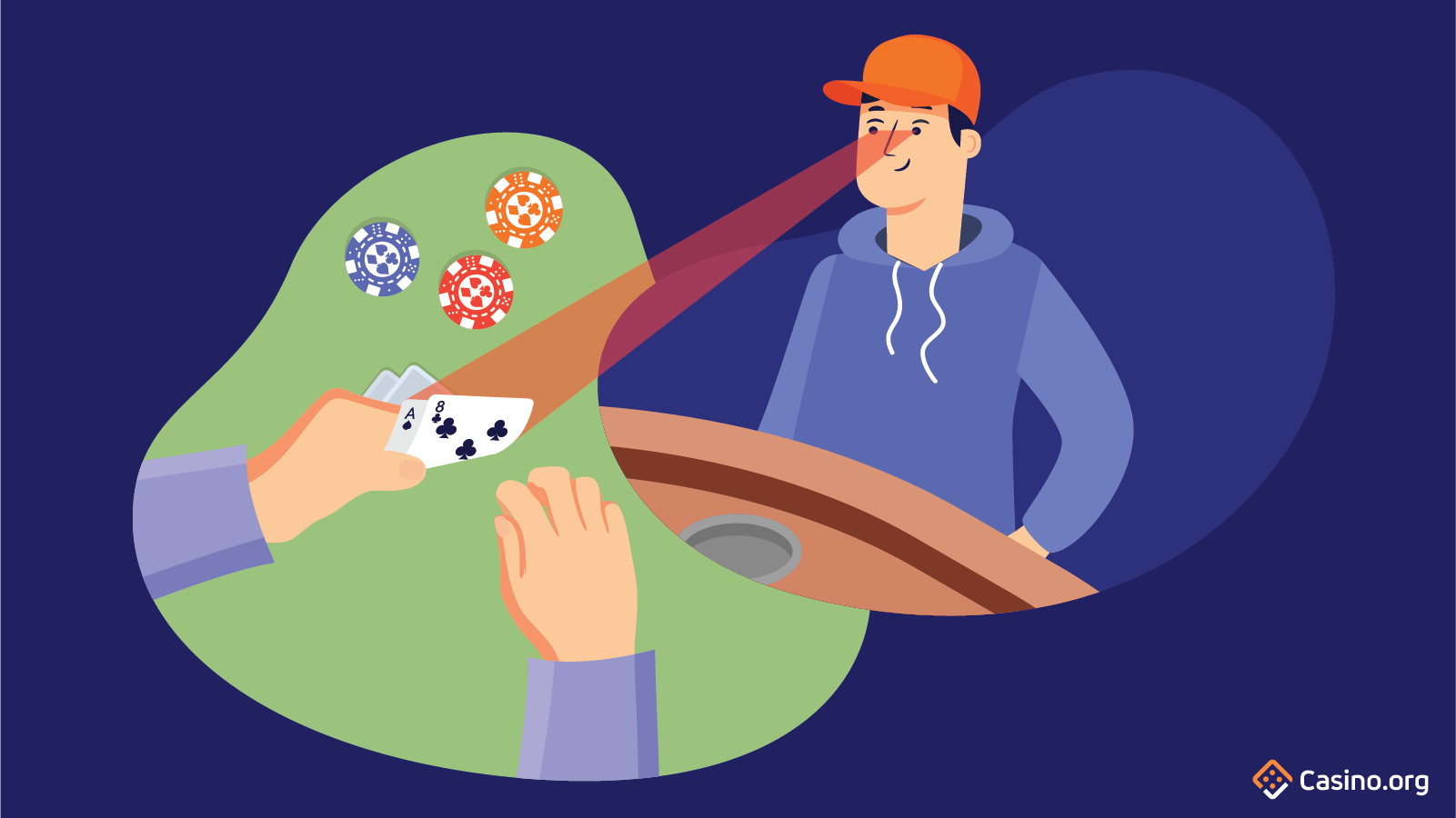
Angle shooting is when a player makes an intentional, unethical move to take advantage of less experienced players or a situation at the table.
It’s one of the most disgusting things you can do when playing and comes in many different forms.
Angle shooting has become a bit of a grey area in poker.
While it’s not strictly cheating, it’s poor etiquette and a move you should avoid.
It’s impossible to mention all of these moves but I’ll describe the most common ones, so you know what to avoid.
Common examples of angle shooting:
- Trying to see another player’s hole cards.
- Intentionally acting out of turn.
- Hiding your high-value chips to create an illusion of a shorter stack.
- Counting chips or moving them closer to the middle, pretending you’re planning to call (to see the reaction of your opponent).
- Verbally saying that you “Raise” and then only putting chips for calling, knowing that you’ll be forced to raise by the dealer, and this way trying to give an illusion that you don’t have a strong hand.
- Stating that you have a winning hand at a showdown while not having it.
During a tournament, I once saw an incident where one player said he had the nuts. The other guy mucked his hand only to see that the first guy didn’t have anything at all.
Yet, since he threw his hand into the pile of other cards, the decision was to give the pot to the first player.
Pretty unfair, right?
You should never intentionally try to trick someone into doing what you want or revealing additional information. Play your game and be fair to others.
2. Never Slow Roll
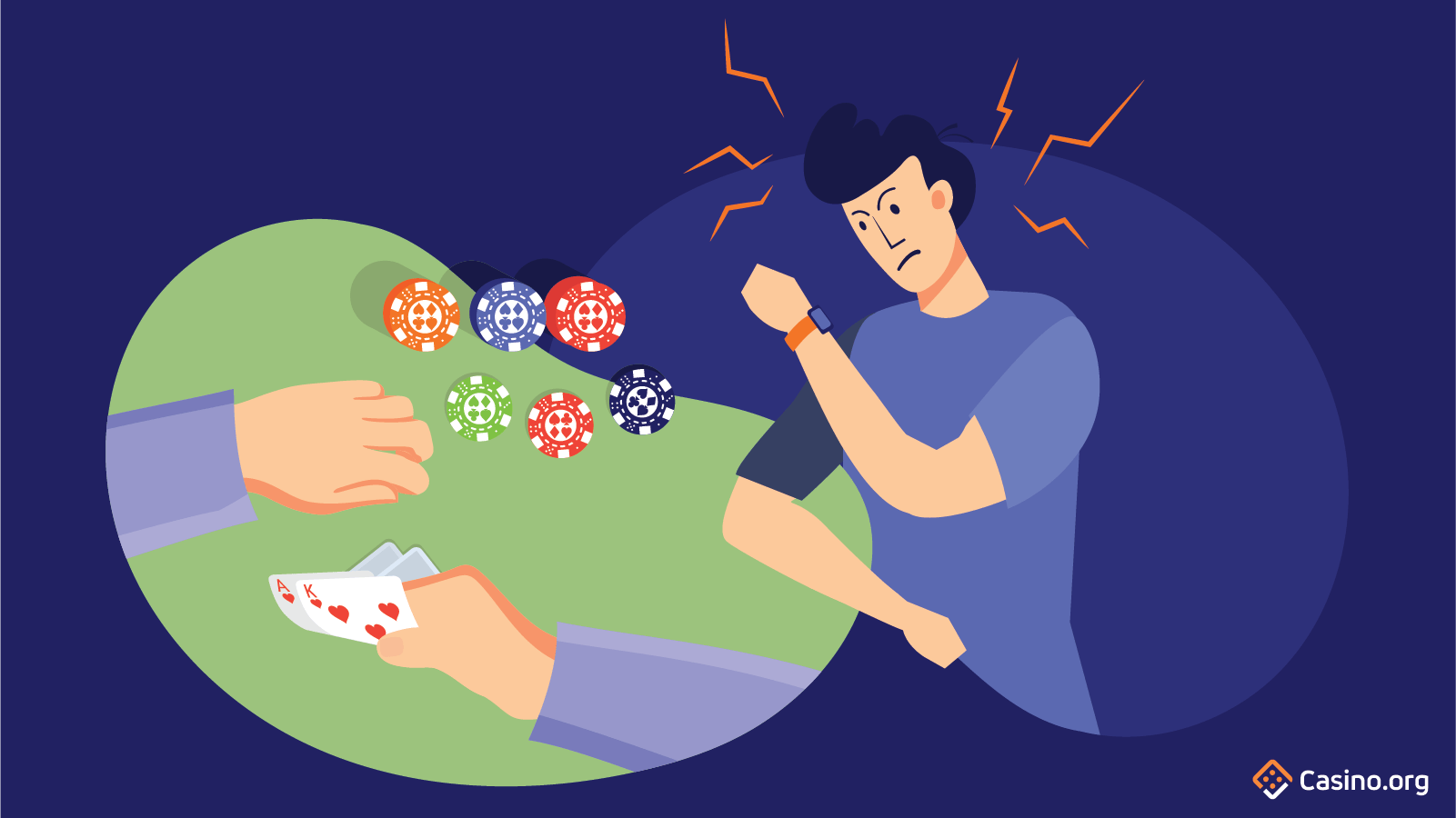
Slow rolling is considered one of the worst things you can do while playing, so you should avoid it at all costs.
This is when you know that you’ve got the best hand but refuse to show it in a timely manner, giving the illusion to another player that they’re going to win.
If you do that to disguise your holdings while still in the middle of the hand, it is not a slow roll.
But when the action goes to the showdown, or you put all your chips with the nuts, you should reveal your hand rather than making your opponent think that they are ahead.
This is a matter of simple respect and good poker etiquette.
So instead of showing bad manners and slow rolling when you have a chance, show some grace and act like a winner.
3. Don’t Be A Time Waster
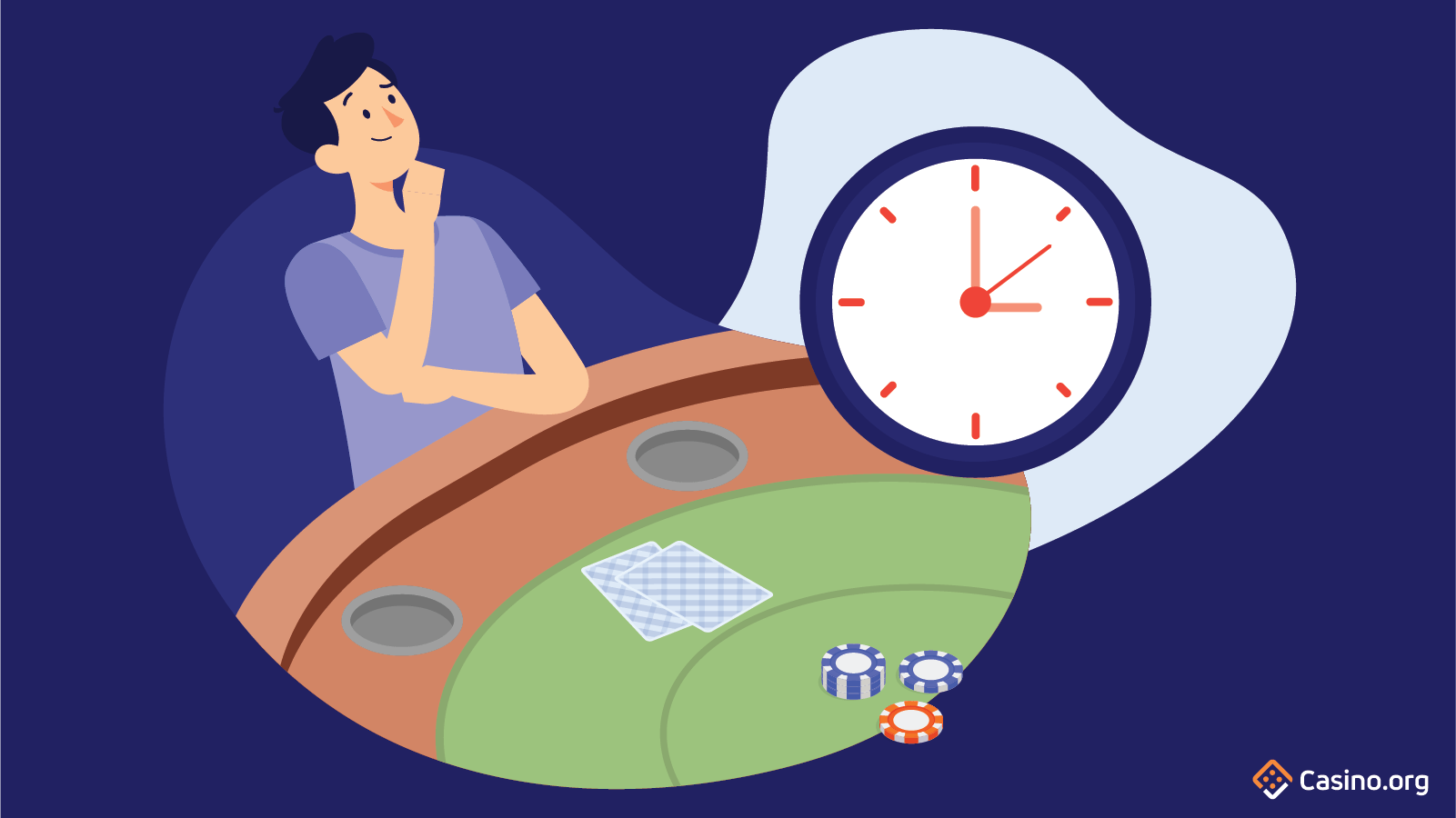
I hate when players constantly take more time than needed, even for simple decisions.
I’m not talking about situations where you actually need to think.
You should take as much time as needed when you’re in the big pot or have a tough decision, and consider different options to find the most profitable play.
However, there are plenty of players who constantly take an extended time to make every single move.
They take a minute to decide if they want to raise or fold preflop and, after wasting everyone’s time, often end up mucking the hand.
It’s annoying, so don’t do that.
Also, some players tend to waste a lot of time acting like they have a hard decision postflop when they’re sure they’re going to fold.
If you know you’re going to muck, just do it.
There’s no need to pretend you’re thinking about your decision, just to look smarter or build your image, because honestly, nobody cares.
On top of that, you shouldn’t engage in other activities while you’re in the hand.
Do not waste time by using your phone, watching TV, or chatting with someone when it’s your turn to act. You can do all of that after folding.
All of this only slows the game down and makes you play fewer hands per hour, which transitions into less profit.
So, it’s not only rude but also hurts your bottom line at the end of the day.
4. Don’t Call The Clock Unless It’s Necessary
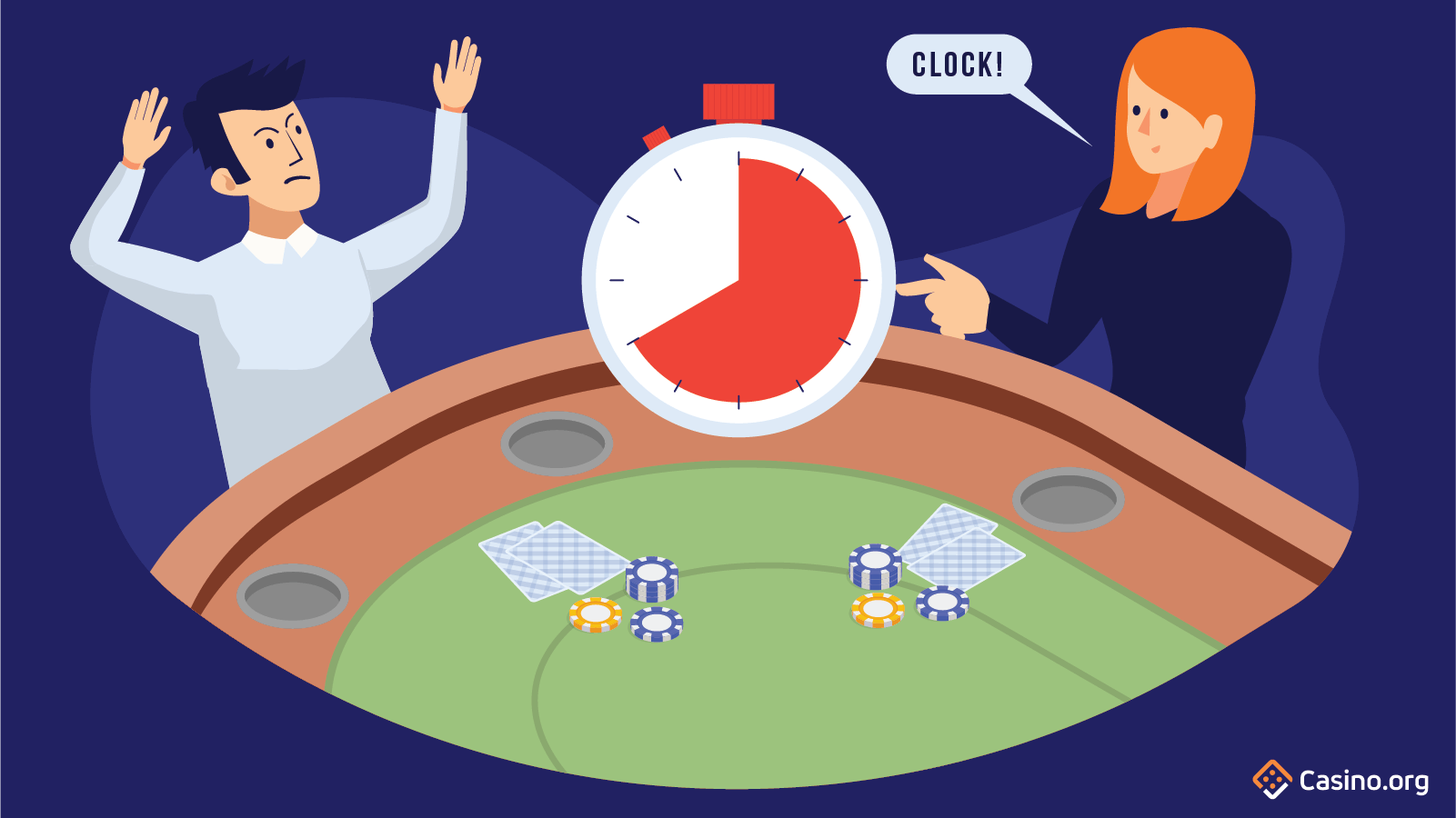
If you think someone is taking way too much time to make a decision, you can ask floorman to limit their time, which is known as “calling the clock”.
Usually, the player is given 60 seconds to act after someone calls the clock on them.
It’s rarely a big problem, but I have seen players doing it way too soon and not giving a chance for their opponents to think through a decision.
Always treat your opponents with respect and give them a chance to think when they have a really big decision for a big part of their stack.
Only call the clock when things are getting out of hand, and another player is thinking way longer than is normal in that particular spot or being a timewaster on purpose.
5. Always Act In Turn
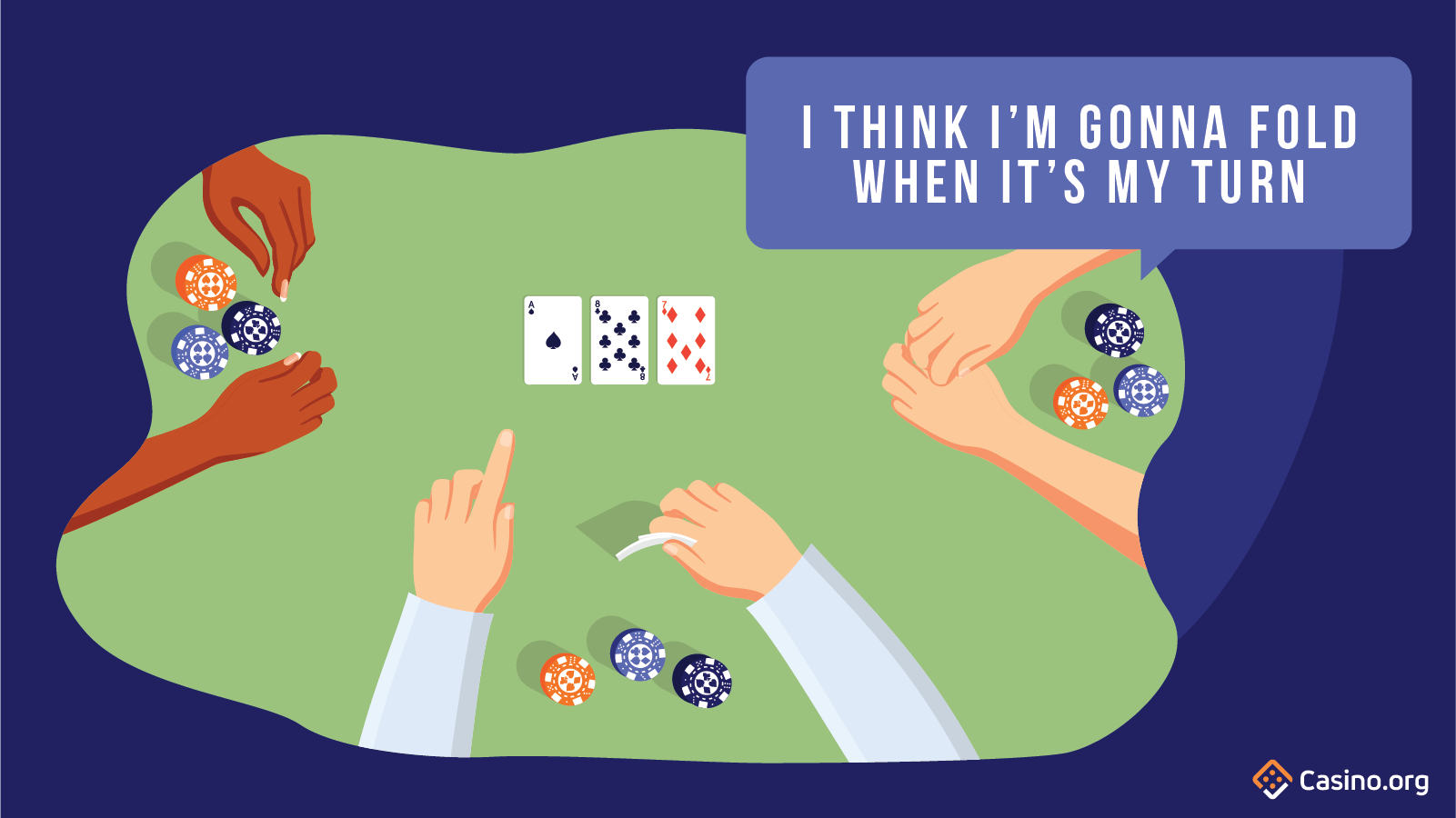
You should only declare your move when it’s your time to do so. If you have a player in front of you who is still thinking, never announce your action.
By acting out of turn, you give that player additional information, which is really unfair to others at the table – and extremely rude.
You could end up spoiling the whole hand!
I know that players generally don’t do this on purpose, but unfortunately, quite a few make this mistake by “accident”, which is still their fault.
To avoid it, make sure to follow the next rule carefully.
6. Pay Attention To The Action
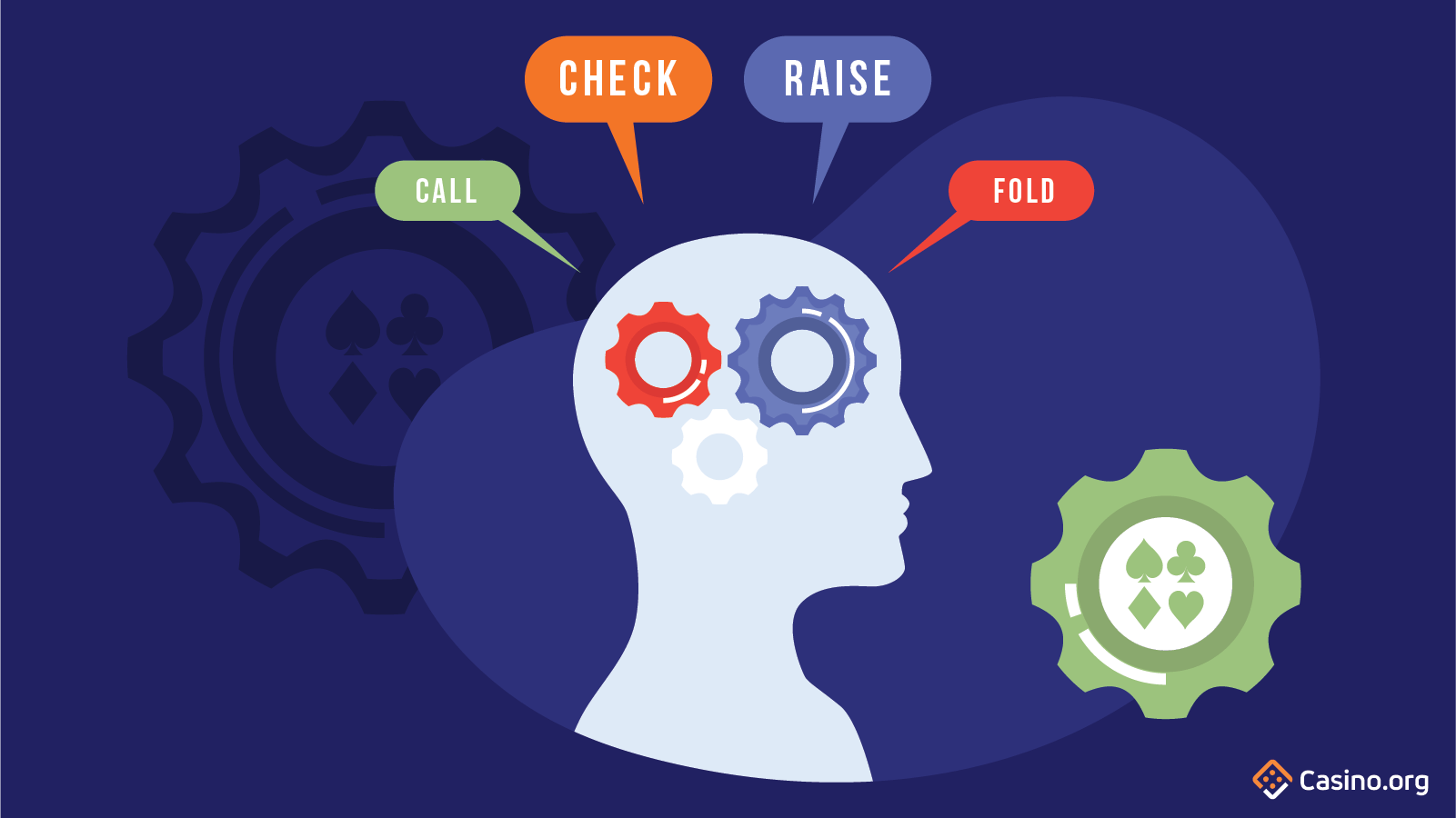
If you always pay attention to what’s happening on the table, you can easily avoid acting out of turn.
You’ll also speed up the game, which is always an added benefit.
Don’t be that guy who always forgets to put “ante” in the middle of the table or listens to music and constantly misses what the dealer is saying.
While it isn’t against the official rules, it’s somewhat disrespectful to others, so you should try to avoid it.
On top of that, if your concentration is away from the table and you’re not able to follow the action, you’re almost guaranteed to miss important information that could help make better decisions.
So again, not only disturbing for others, but also hurting your win rate.
7. Keep Quiet If You’re Not In The Hand
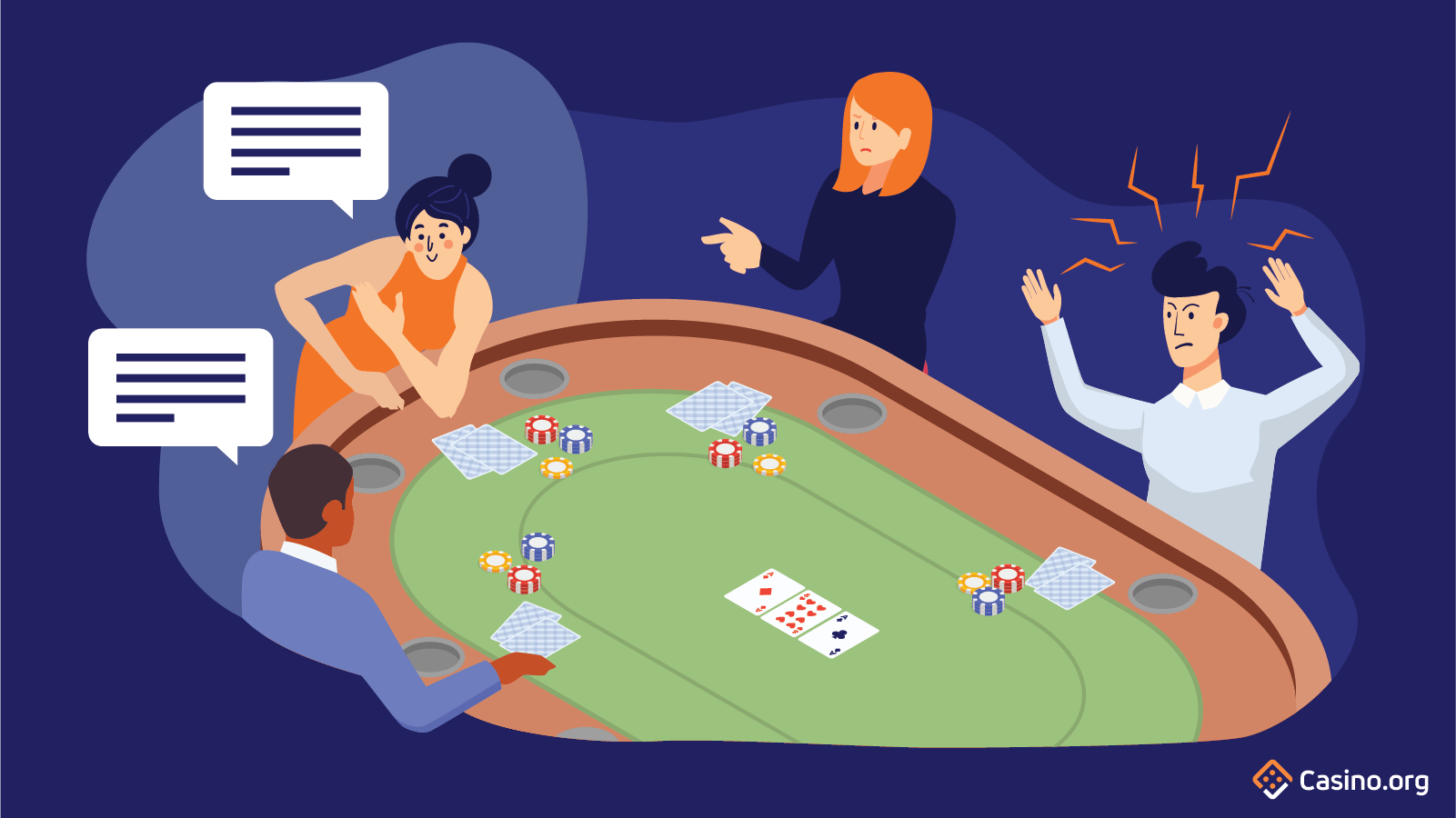
Another example of poor poker etiquette is talking when you’re not in the hand.
It can distract other players and give away information, even if you don’t mean to.
You should not only avoid talking with players who are still playing, but also chatting with others at the table.
It can drastically complicate the decision-making process and distract players.
The same can be said about discussing the situation, talking about ranges, bet sizing, positions, or anything else related to the hand.
Keep these insights to yourself, at least until the hand ends.
8. Don’t Reveal Your Holdings While Others Are Still Playing
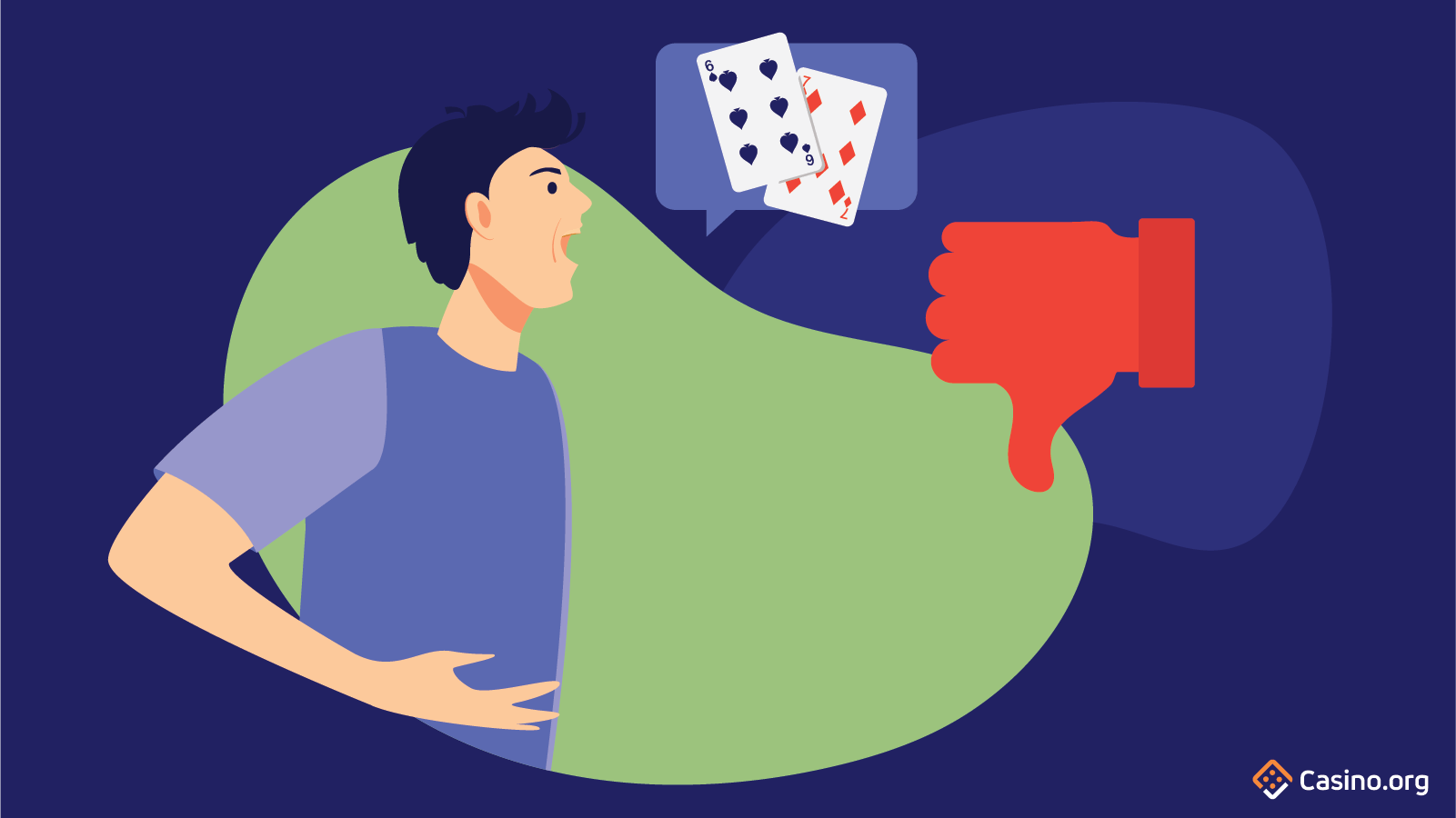
Even if all the action is closed and you see players all-in, you shouldn’t declare your hand.
It may be tempting to share what you had when you see a close raise like a flip and know what you folded some of the outs.
However, no one wants to know that they have less chance to hit, so let them sweat the hand and leave this information to yourself.
That being said, revealing your hand when players are already all-in is not the worst thing you can do.
Whatever happens, you should not give away ANY information about what type of holding you folded.
It means you shouldn’t react to the flop in any way after folding your hand, even if you would’ve hit it and made a strong hand.
9. Do Not Show Your Hand To Anyone While Playing
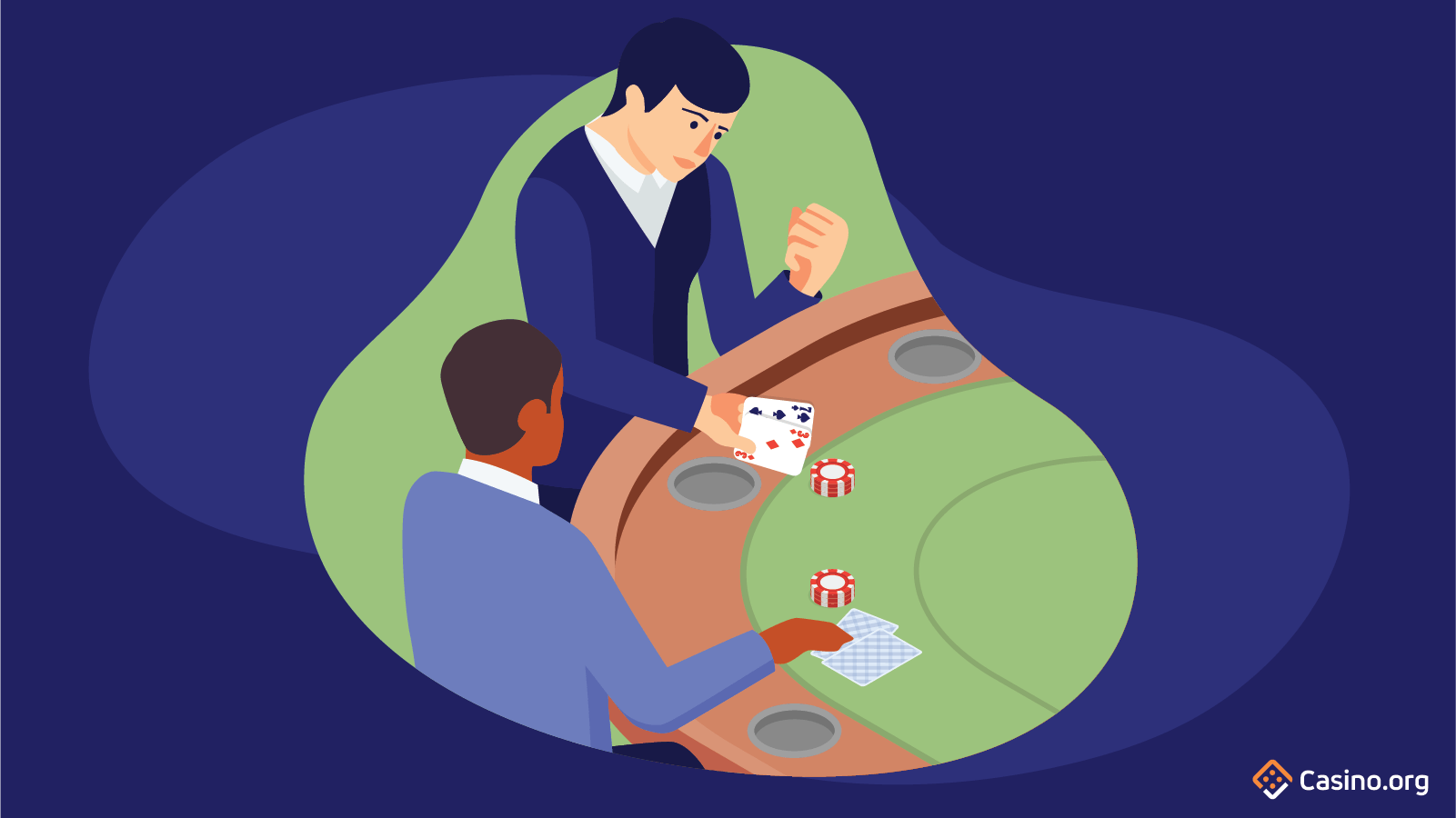
Even if you’re sitting next to your friend who already folded, you should never reveal your holding because they can unintentionally give away the strength of your hand or try to give a piece of advice.
Likewise, you should never try to give advice or ask for it. This is against the official poker rules.
Play your hands individually, without help from outside.
If you don’t follow this rule you can be forced to fold or even given a penalty.
10. Always Respect Other Players

Always be polite to your opponents.
Since you are likely to spend at least a couple of hours with the same players in a live environment, having a good time and making everyone feel welcome is common courtesy.
On top of that, it’s a proven fact that players tend to be easier on someone they like, so you can even extract monetary value from simply being polite and chatting with your opponents.
It’s also very important to treat new players with respect. Even if they make mistakes, act out of turn, or show their cards when they shouldn’t, they are most likely not doing it on purpose.
Remember your first time at the table. I am sure you didn’t know everything, either!
If you see any misunderstandings, explain the rules and make them feel in place.
If you give a new player a hard time, they may never come back, and you don’t want to be in the games where no new players are coming. That’s just common sense.
You should also avoid giving your opinion on how you would’ve played the hand or what they should do differently next time. Keep those insights to yourself.
Even if your opponent is not a newcomer, you shouldn’t berate or act improperly no matter what they do.
Everyone knows some good berates that Phil Helmuth or Tony G threw over the years, but do you think it does any good?
If that’s not enough to convince you, you can actually get kicked from the game for bad behavior, or at least never invited again.
So always treat other players with respect, no matter how they play, or what they do at the table.
11. Always Respect The Dealer
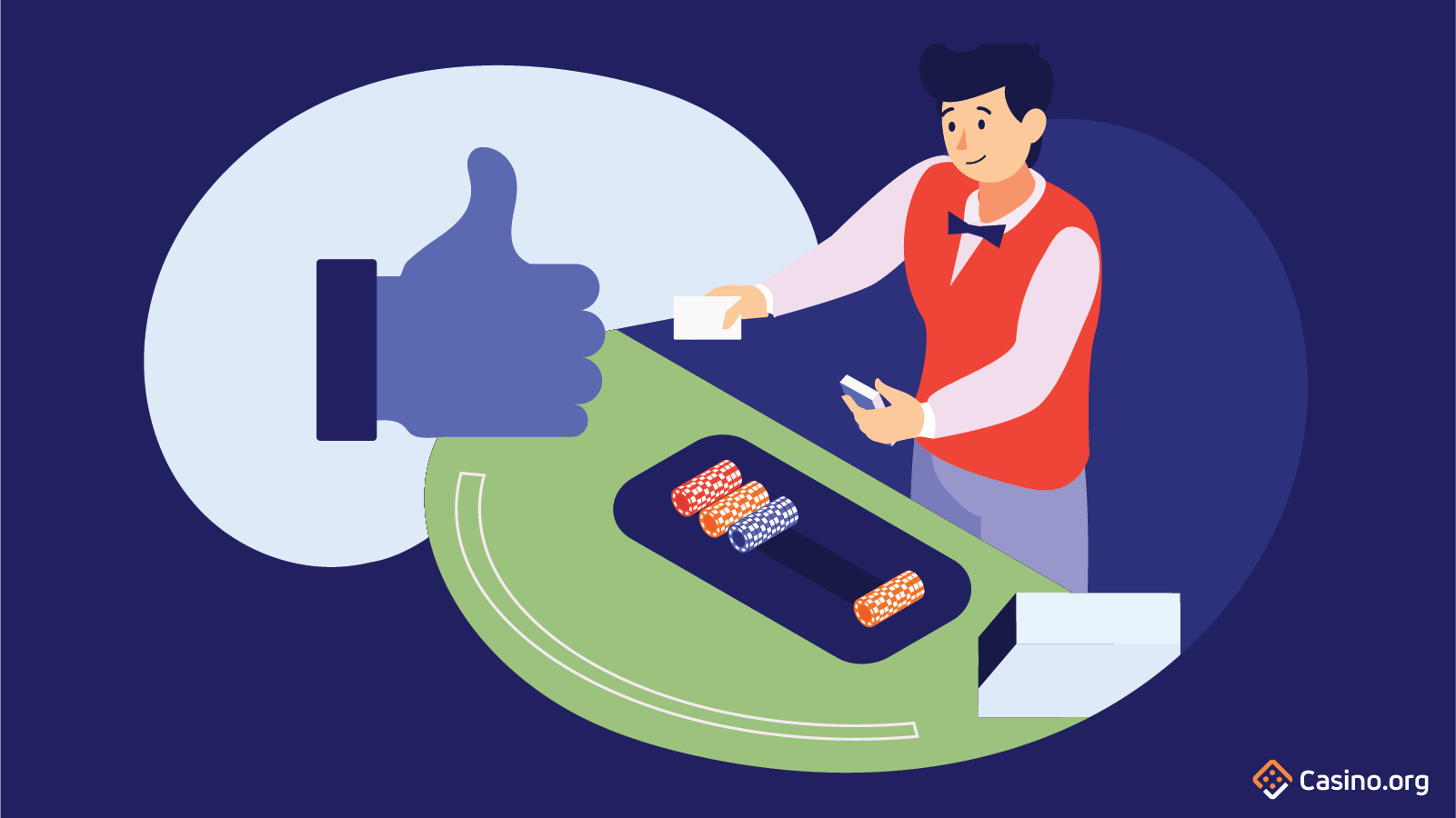
It’s beyond the scope of my understanding when players don’t respect the dealers. These guys are just doing their job, and quite a hard one to be honest.
You have to understand that they don’t control the outcome of the hand, and it’s not their fault when your opponent wins a big pot.
Arguing with the dealer will not help you in any way.
Obviously, they do make mistakes from time to time, but that’s not a reason to give them a hard time.
Instead, if you notice such a mistake, politely explain it and ask them to fix it. If that doesn’t work, you can always call the floorman and explain the situation to him.
Try to avoid letting your emotions get the better of you.
To be honest, I would like to see more strict rules in regard to this problem. Many players often take it too far by disrespecting dealers or blaming them for the bad cards they are getting.
It only makes everyone feel uncomfortable at the table and spoils the fun.
12. Don’t Complain About Bad Beats
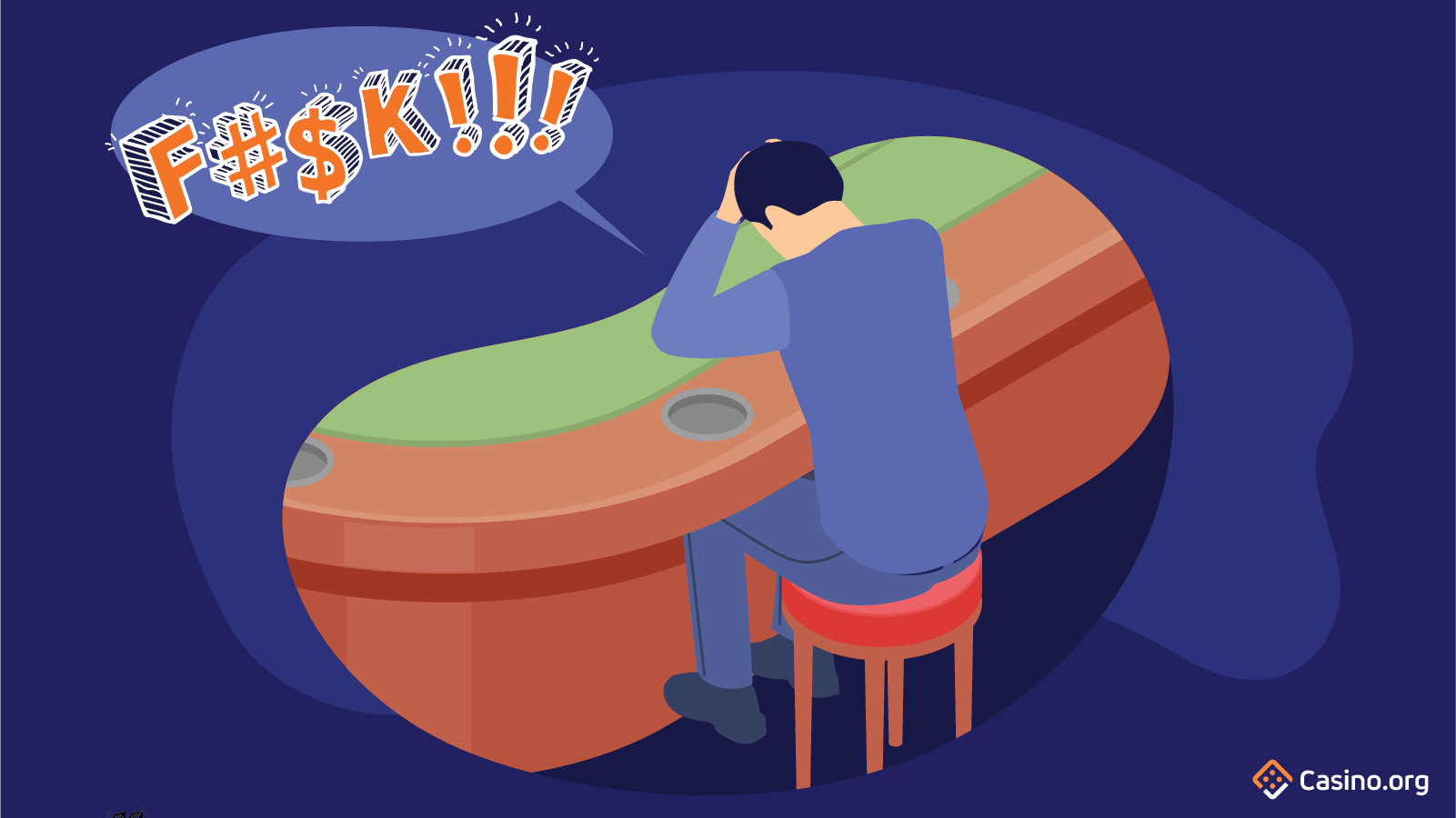
Complaining about bad beats is ridiculous on its own, yet many players love doing it.
Even if someone hits 2-outer on the river to take a big pot out of your nose, it’s not a reason to start sharing how unlucky you are and stating that you’re always losing in similar spots.
Everyone has these beats from time to time.
If you constantly cry about your bad beats, you show that you don’t understand how poker works. That looks ridiculous, to say the least.
On top of that, you’re giving away information that you’re tilting and are likely to play suboptimally going forward, which can cost you a lot of money in the long run.
13. Put The Most Valuable Chips In Front
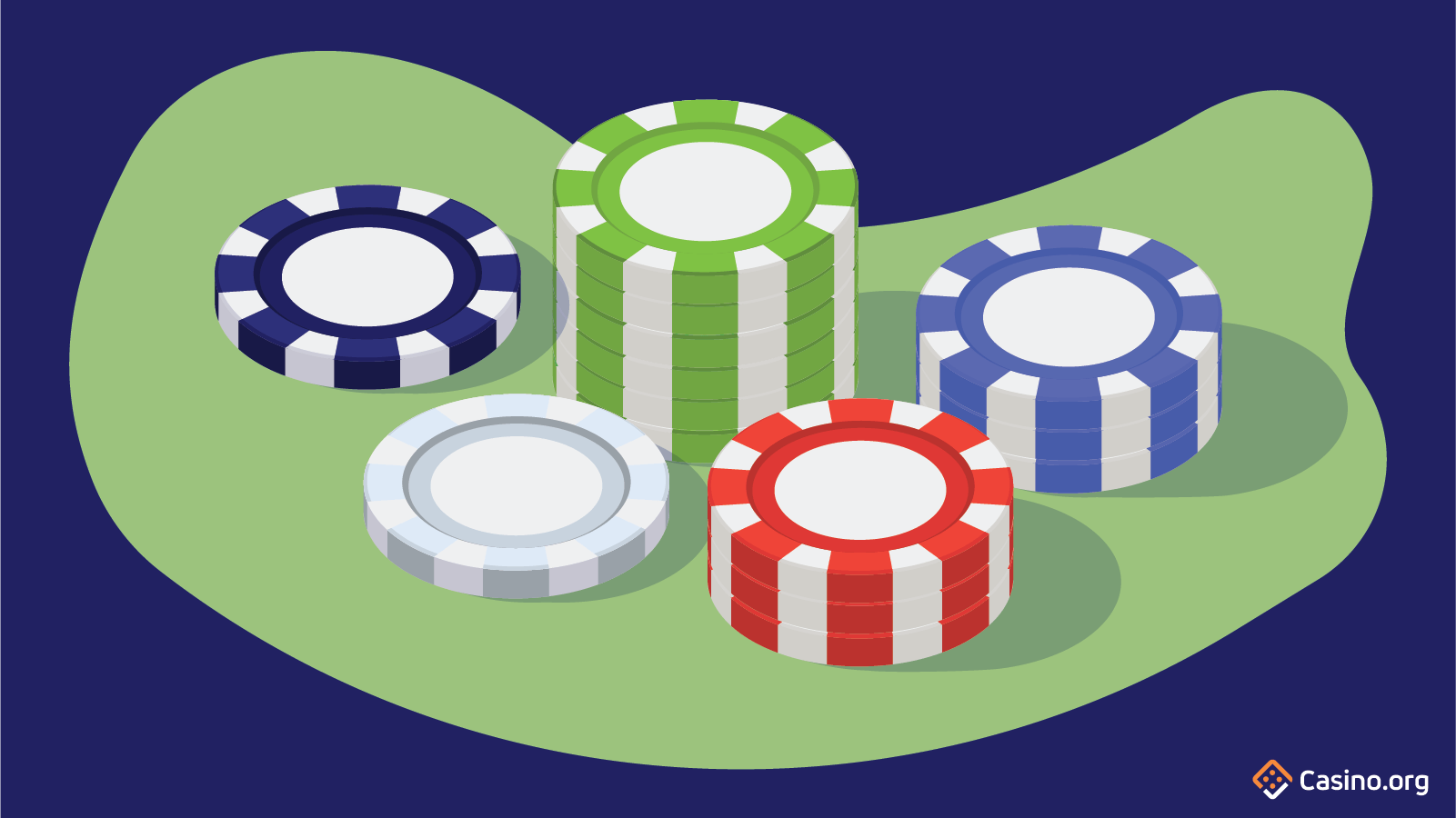
Hiding high-value chips behind the stack of lower ones is considered unethical behavior.
It can easily mislead other players and create an unpleasant playing environment, so you should try to avoid it.
Also, you should not cover your chip stack with your hands or block it in any other way. Always keep it visible so that other players can make educated decisions.
However, if your stack is clearly visible and someone asks how many chips you have, don’t feel obligated to answer.
If you don’t want to give away any information by talking, let the dealer answer this question, or your opponent can count it by observing your chip pile.
14. Don’t Try To Teach Others How To Play
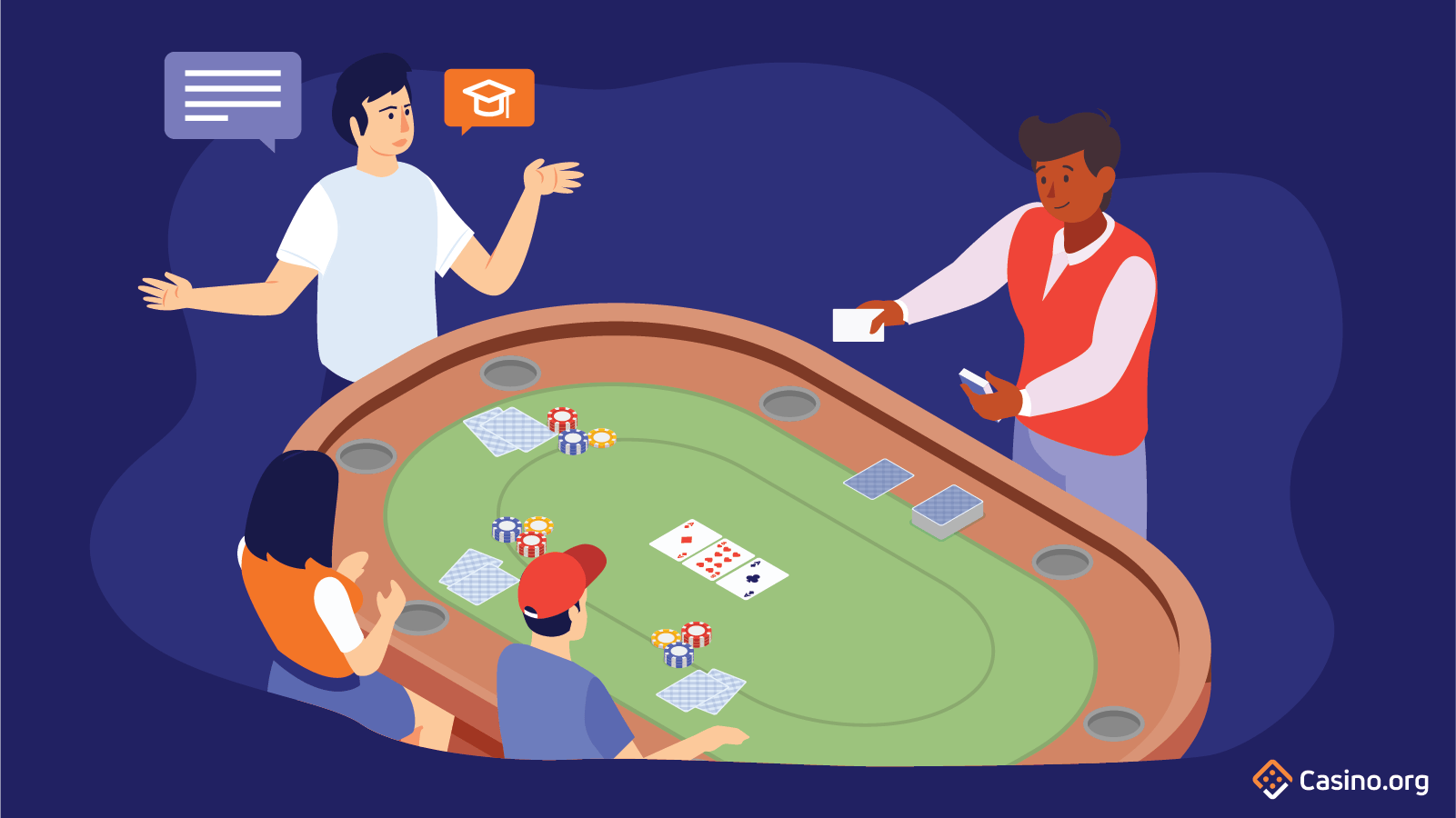
It’s extremely annoying when someone tries to teach others how to play poker.
Even if you know that someone made a mistake, there’s no point in highlighting it (unless they’re a total beginner) or making fun of them.
Everyone is playing the way they want, and if they keep making mistakes, it’s even better for you.
So, like with many points we already mentioned, you not only act unethically but also reduce your winnings at the same time.
15. Don’t Hit And Run
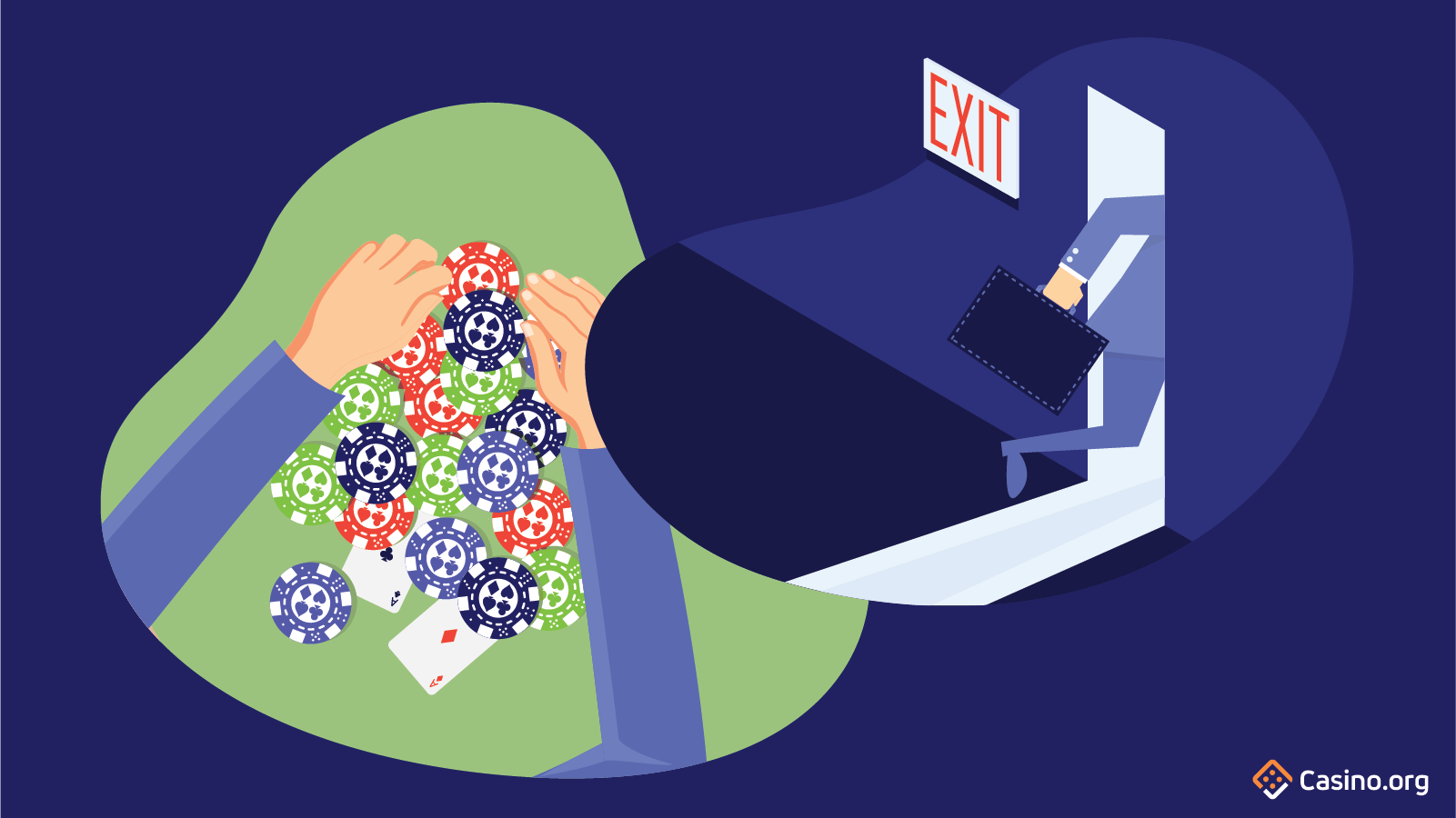
If you’re playing cash games, don’t be the player that “hits and runs”.
This is when someone wins a big pot at the beginning of their session, then gets up and leaves straight away.
The same can be said about winning a very big pot later in the session.
This really annoys recreational players and regulars, as well. But most importantly, it doesn’t stop you from losing it back, so it’s actually pretty pointless.
You have to realize that every hand is a separate event, and if you cash out those winnings and sit down at another table, you can easily lose there as well.
Of course, you can make an argument about not wanting to play very deep stacks, but that’s more of an excuse than a reason.
There will probably be instances where you have to leave the game and happen to win just before that, but try not to make it a habit.
16. Don’t Splash The Pot
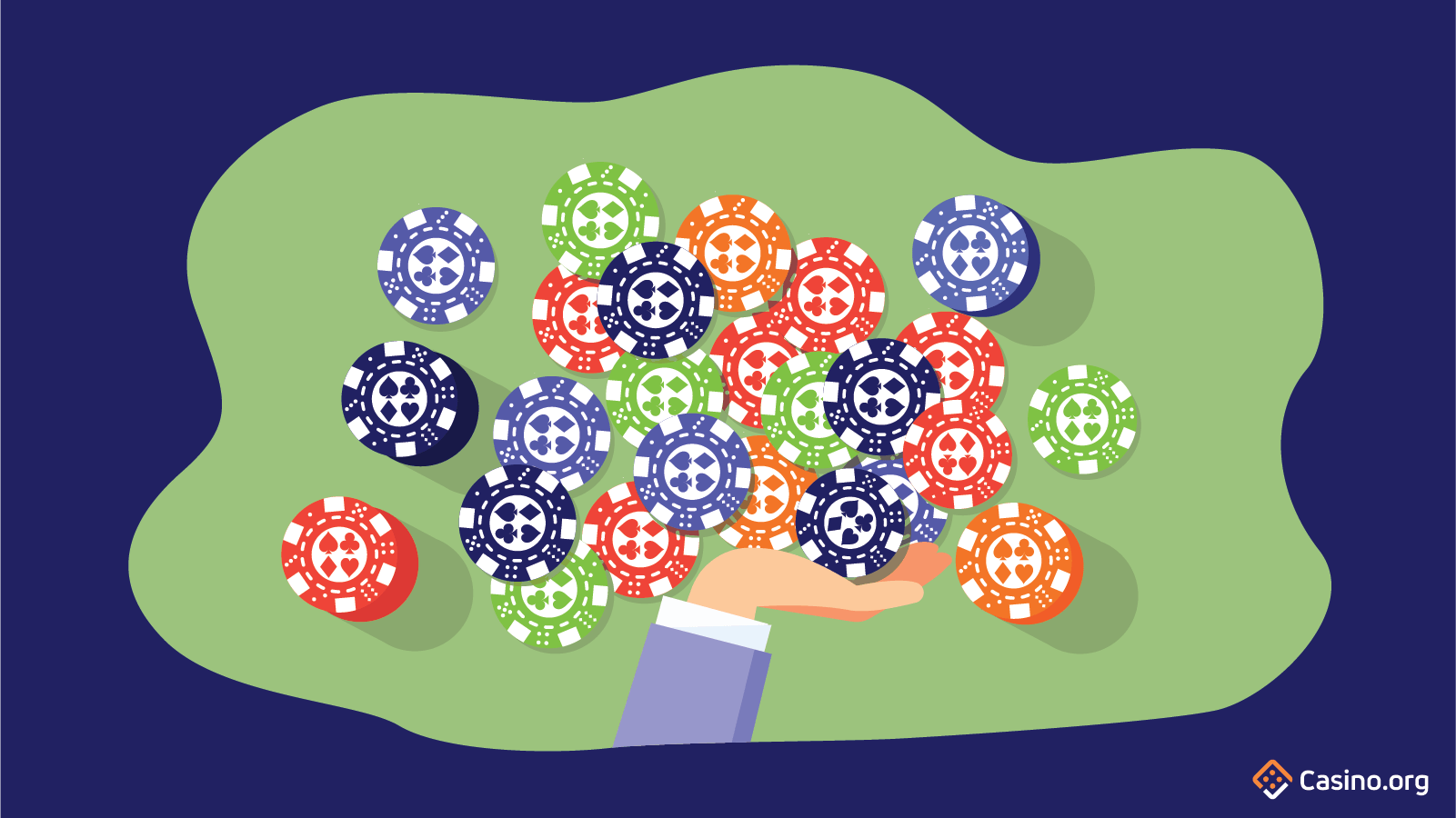
This is a well-known quote from the famous poker movie Rounders, where Mike asks Teddy KGB not to splash the pot and gets “a polite” answer.
However, there are legit reasons why you should never do it.
First of all, it’s disrespectful for the dealer and will take additional time to count your bet.
On top of that, it can lead to many misunderstandings because it can be hard to identify how much the bet was exactly.
So, never splash the pot and save yourself from possible trouble.
17. Don’t Celebrate Too Much
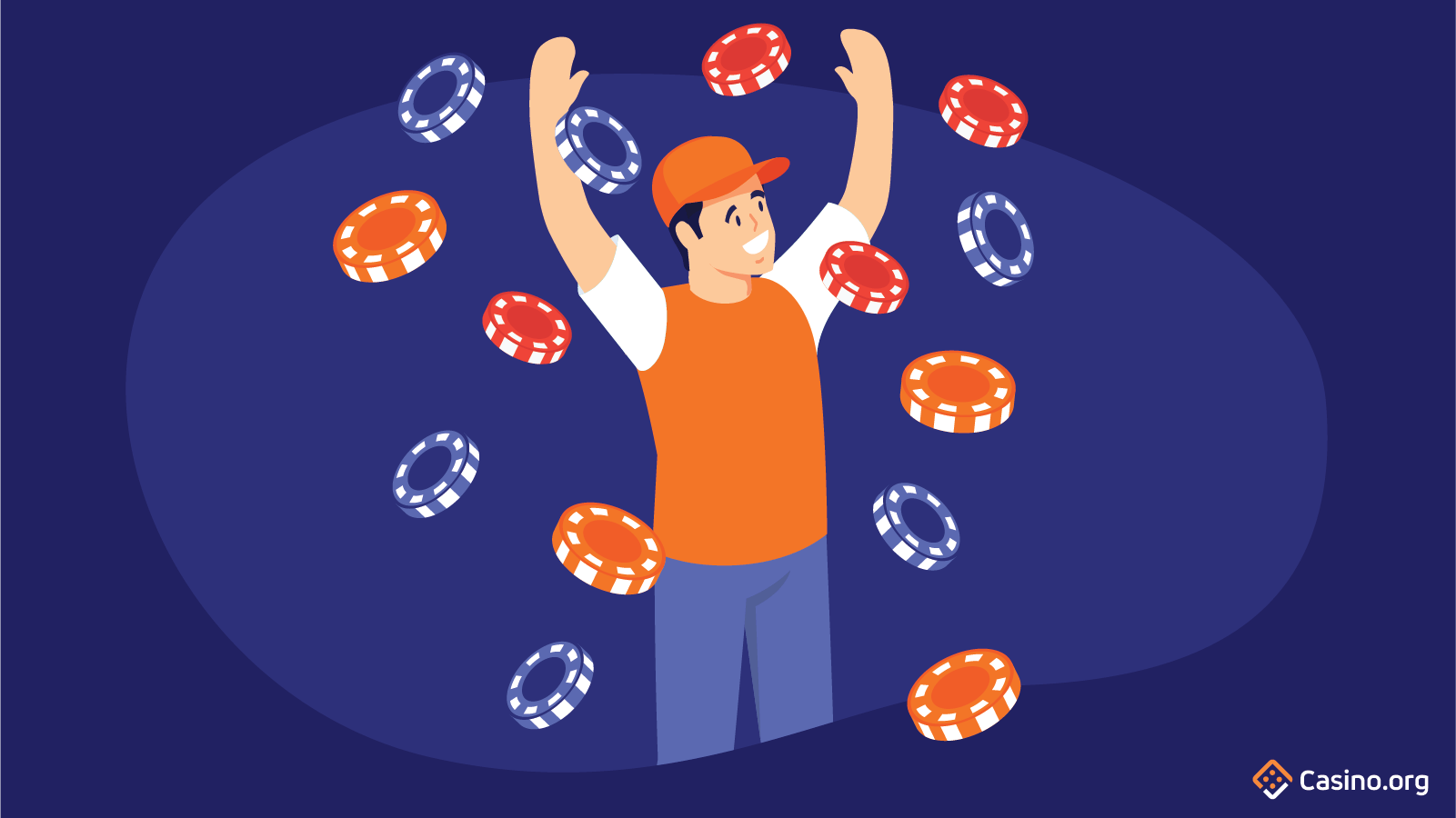
Celebrating too much be very annoying.
Your opponent won’t be thrilled after losing a big pot in the first place, and the last thing they need is someone gloating about their win.
Of course, there’s nothing wrong with being happy. But luck can quickly change.
Ask yourself whether you’d like to see someone teasing you after bluffing in a big pot?
I guess not, so don’t do it to others.
Now You Know All The Unwritten Rules Of Poker
Even if you don’t know all the rules, it simply comes down to common sense.
Be respectful to other players and staff, don’t give away any information when not playing, and don’t bother other players in the process.
This will not only ensure that you have a better time in the game but will surely boost your win rate, as well.
So, after all, maybe it’s worth being a gentleman at the poker table?
Now you’re clued up on the unwritten rules of poker, it’s time to put them into practice at one of the top online poker sites recommended by Casino.org.
Or check more articles on poker, such as the 10 most common mistakes in Texas Hold’em, poker statistics, and poker cheat sheets for beginners.

